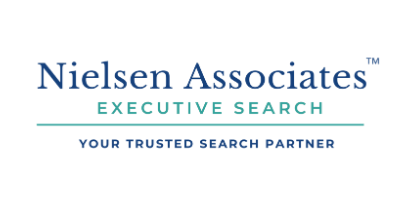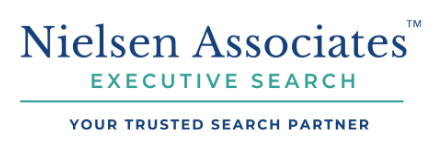Communication Skills, Integrity + Self-Direction
9 Modern Skills Everyone Should Be Hiring For
It's time for a final sneak peek of our new eBook, 9 Modern Skills Everyone Should be Hiring . It’s a definitive guide that we designed with everyone in mind, where we clarify critical skills and interview buzzwords - like agility, emotional intelligence, integrity, and beyond. Follow us to get a download link as soon as the guide is available, and catch up here if you missed our other previews.
Our hope is that you’ll turn to our new guide as a resource whether you’re hiring, seeking employment, or looking to sharpen your skills. Read on.
7 | Communication Skills
What it is:
Many employers offer flexible, remote work arrangements as a way to provide greater work-life balance for employees. This has resulted in a workforce that’s increasingly global and remote, and great communication is more important (and more challenging) than ever. Many people confuse communication skills with detailed email that’s got perfect grammar and spelling. (That’s business writing — and it’s different than effective communication skills.) Employees who communicate effectively present messages that are clear, easy-to-understand, and are less likely to be misinterpreted. They simplify complex concepts and business processes and explain them to others in a way that’s memorable, easy-to-recall, and easy-to-retain. They consistently deliver messages that are concise and they know when to include visuals to convey meaning quickly and universally. It requires awareness, planning, sensitivity, and creativity.
Why it matters:
When an employee has exceptional communications skills , they are more impactful, engaging and influential - and all of these qualities are important when managing and leading others. They’re able to illustrate abstract concepts and complex business processes, so that their teams understand the data, information and performance targets the company is working towards.
How to spot it on an interview:
- Tell me about a business presentation that you had to give in any of your previous roles.
- Here’s a hypothetical: You just got a copy of a research study from your Senior VP. It’s got a lot of info that will help your team, but the document is long; it’s not an easy read; and you’re pretty sure you’re not allowed to distribute it electronically. How do you share it with your team?
- When it comes to communication, do the details always matter?
- Everyone’s email inbox is overloaded. How do you make sure your messages get open and stand out?
8 | Integrity
What it is:
Most companies have unique, specific, role-based definitions of integrity . For example, within in the IT Department, a company might require certifications in compliance, security administration, and data handling. And in the Marketing department, integrity might be defined as respecting the consumers right-to-privacy, avoiding misleading advertisements, and making credible claims that are backed by a guarantee. No matter how you define it, integrity just might be the most important quality listed on your Company’s job requisitions, because it’s about finding honest, ethical team members who understand the legality of the critical role that they’re interviewing for; and once hired, they act accordingly.
Why it matters:
Companies who want to minimize risk and build consumer trust hire experienced, ethical leaders to design and implement compliant business processes. Ethical leaders make it a priority to develop like-minded teams who have a strong sense of honesty, integrity and responsibility.
How to spot it on an interview:
- What’s your personal definition of integrity?
- Talk briefly about the advantages and disadvantages of transparency within an organization.
- What are some ways that you determine whether an individual or business entity is trustworthy?
- How do you ensure that team-members are consistently following company policy and procedures?
- Give a specific example of a policy you conformed to with which you did not agree.
9 | Self-direction
Self-directed employees maintain and analyze business processes, identify issues, and propose solutions that are in alignment with overall business objectives. They’re often viewed as agile employees who make continuous improvements at their organization. Because they often work on goals that they set, for projects that they scope, they’re highly motivated, and have a strong sense of ownership over their work. Self-directed employees are typically responsible (and held accountable for) a business process, application, product, or business unit, and they feel a strong sense of commitment with minimal supervision or leadership. Many are experienced project managers.
Why it matters:
Hiring self-directed employees is an effective way to strengthen the leadership bench inside of any organization. These employees are naturally motivated, they’re intrinsically rewarded by the projects that they scope, and they stick around - they’re less likely to leave a company because they have a strong sense of commitment to work that they care about. During succession planning, self-directed employees are an internal talent pool. Companies often invest in these employees —developing and coaching them for increasingly challenging leadership roles.
How to spot it on an interview:
- Talk about a project that you owned, start-to-finish. How did you scope it? How did you execute? How did you measure success?
- Think of a time where you solved a problem that had several root causes. How did you analyze the problem, and what was the solution?
- Tell me about some goals that you set yourself and how you went about meeting them.
- Tell me about some projects you generated on your own. What prompted you to begin them? How did you sell them to your manager or peers?
——
Want more interview questions? Our eBook has all the goods. Download a complimentary copy here .
Need to collaborate with an expert recruiter? Visit nielsenstaffing.com and request a free consultation today.
—-
Credits:
Content Developer: Nine Planet Design
References: Emotional Intelligence 2.0, Bradberry & Greaves, 2009 | www.talentsmart.com













